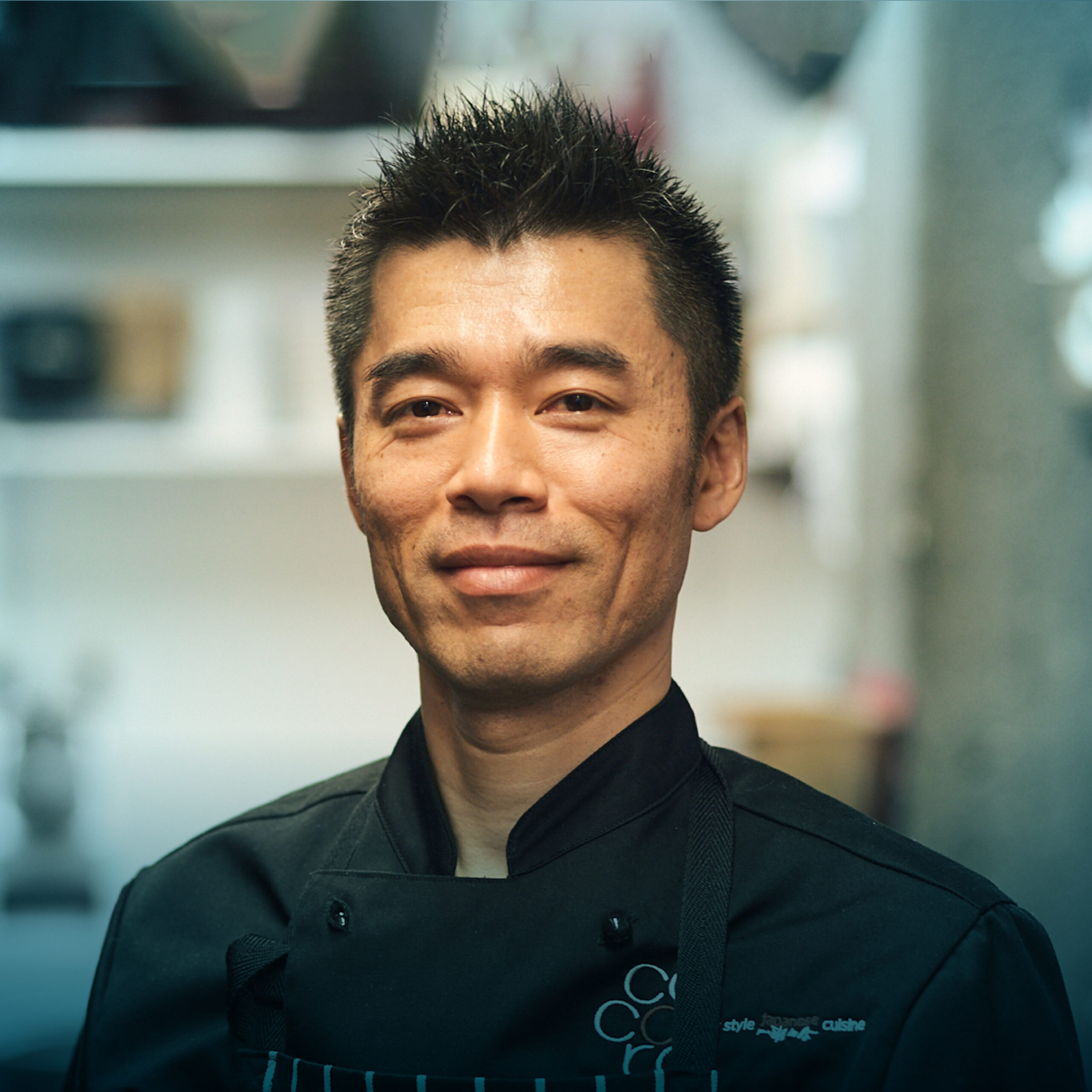
It’s difficult for Makoto Tokuyama to pin down one dish that reminds him of growing up in Saga, Japan. Living in a Zen Buddhist temple meant mealtimes were always shared with the extended family and often consisted of seafood wrangled from the nearby ocean that morning, fresh seasonal vegetables donated by local farmers, and an array of pickles, soup, and rice—all carefully prepared by his grandmother, Chizu.
“A lot of the food I serve here is really connected to my grandma’s cooking,” he says of the dishes at his restaurant, Cocoro. “I do a restaurant version so people don’t realize it’s my grandma’s food, but for me, there are a lot of things connected to her.”
Being near the Ariake Sea meant fresh seafood was a staple of his childhood. Makoto says that’s why he loves creating Cocoro’s signature sashimi platter, a striking masterpiece that showcases more than 30 different species.
“There used to be a local fish market close to my house. Every morning, the fishmonger would go to the market and then come to my house in a small truck. My grandma would pick whatever she wanted, and in the evening, she would fillet the fish for sashimi and use the offcuts to cook a dish called Arani.”
Arani is made by simmering fish heads, bones, and offcuts in a soy-based broth with ginger, spring onions, and seasonal Japanese root vegetables like daikon. A popular garnish is kinome leaf, a Japanese herb that numbs and tingles slightly on the tongue with a mild peppery-citrus flavor. Makoto says arani reminds him of his grandmother’s deep respect for ingredients and commitment to minimizing waste—values he has carried with him throughout his life and into his restaurant.
When he was 24, Makoto spent a year practicing as a Zen Buddhist monk. Every day, he ate a variety of simple, plant-based dishes that utilized all parts of the vegetable—the skin, the leaves, and the tender stems. To this day, he still saves vegetable stems from Cocoro’s sesame spinach dish as a personal snack, carrying forward the spirit of mindful consumption.
“Now I realize this kind of food was amazing. People there appreciated all the ingredients and cared so much about the details. When I was young, I didn’t realize that I liked that kind of food, but now, at 48, I’ve come to truly love it. It reminds me of home.”
When he thinks about meals from home, it’s not the flavors but the feeling that he misses the most. His older brother now runs the temple, and Makoto says that when he visits, there can be up to 30 family members gathered, all eating together and staying overnight—“kind of like a party.”
“That’s why I love to see customers come to my restaurant, eat nice food, and be happy; that makes me happy. I love to see families, friends, and colleagues gathering, eating together, and laughing.”
Cocoro focuses on presenting his culinary philosophy in the form of degustation courses. Makoto carefully selects the best ingredients in New Zealand, filtering them through Japanese tradition and his own childhood experiences to create unique, thoughtfully crafted dishes.
Cocoro has received numerous accolades over the years, including Three Hats since 2016 and Restaurant of the Year at the 2018 Cuisine Good Food Awards. It has also been recognized in The World’s 50 Best Discovery and La Liste Top 1000 World’s Best Restaurants, solidifying its reputation as one of New Zealand’s premier dining experiences.
In 2022, Makoto was appointed by the Japanese government as a Japanese Cuisine Goodwill Ambassador for New Zealand, further strengthening his role in promoting Japanese culinary culture on a global scale.
As an Executive Adviser, Makoto Tokuyama has played a key role in shaping Waku Waku, a Japanese dining experience launched in April 2022. Located in the heart of Remuera, Auckland, Waku Waku introduces an exciting concept of ‘Old Value, Modern Japanese’, blending tradition with contemporary innovation in a stunning and stylish setting. The Waku Waku logo, sandblasted onto one of the pavilion’s large windows, features a Kamon (family crest) that symbolizes the unity of three families, embodying the philosophy of “All for One, One for All.”